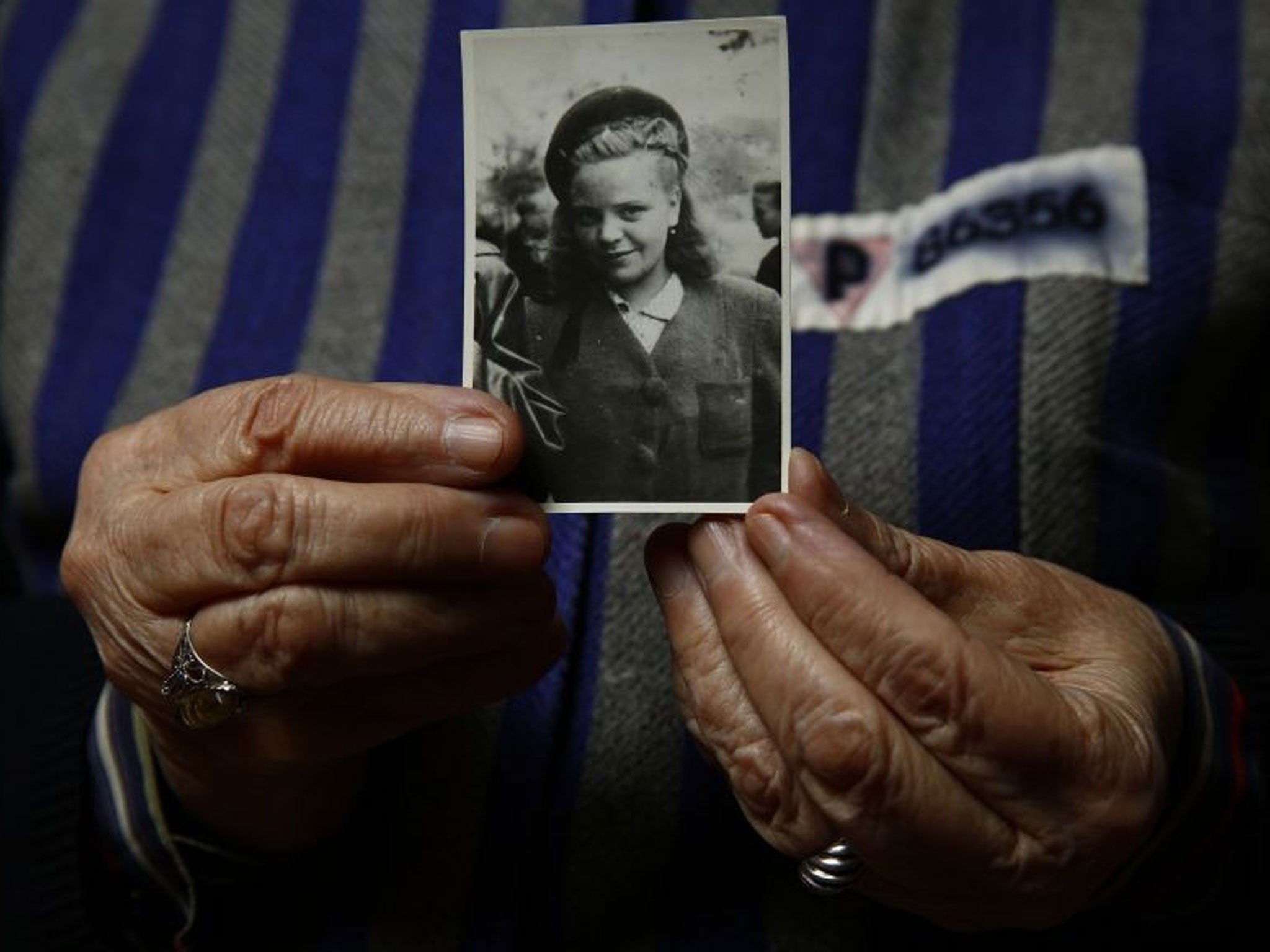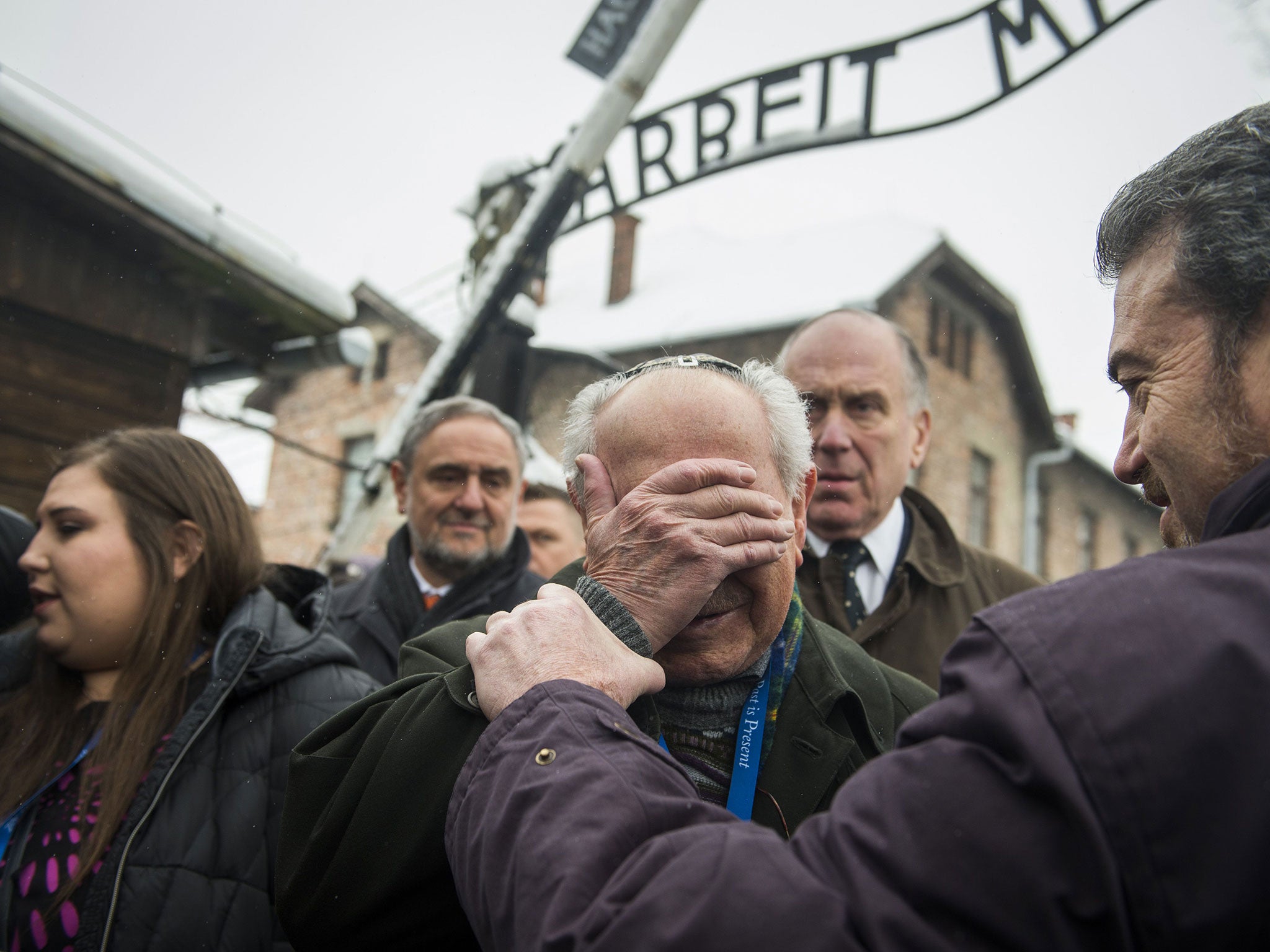Holocaust Memorial Day: This isn't the time to mark just another historical event, but to remember humanity at its worst
In our discussion of what happened 70 years ago, we must go beyond the basics

The Holocaust is one of those subjects everybody knows about, right? Like the Romans, or Monty Python. You say Auschwitz and it conjures up gas chambers and ominous gates.
We know what Hitler looked like – that moustache, of course – and can picture the striped uniform his victims wore. In this country, everyone knows Churchill took a stand, and the British helped liberate the concentration camps.
People know that, don’t they? The Holocaust is never, ever going to be forgotten. Especially not here, where the horrors the Nazis inflicted are part of our collective memory, on our history curriculum and a constant feature of our documentaries. Last week alone the BBC broadcast The Eichmann Show at primetime, while two survivors were awarded the Freedom of the City of London.
But is that enough? A brutal conflict that engulfed the world, and one of the most significant events in British history, and it took a major anniversary and a sculpted reminder to get a conversation going. When we talk about WW1 in the future, will we only talk about the trenches? Will we only stick to the basics, and discuss the assassination of Archduke Franz Ferdinand, or the Christmas Day football match?
To an extent, this has to suffice on Armistice Day. We can’t possibly remember everything. Our news agenda is busy enough, and it’s been an eventful century; we’ve had another world war and several economic crises, while myriad countries have fought off their colonial masters. There's a lot to remember.
I'm not trying to play the "my genocide was worse than yours" card here, but this view shouldn't be controversial. The conditions of the Holocaust were unique. It happened in a supposedly enlightened country under the world's watch, and remains inconceivable in terms of scale today.
Just knowing "it happened", and how many people died, doesn’t go far enough to communicate how the hatred progressed to become mass murder. Likewise, saying "never again" will never be good enough. Just look at all the genocides that have happened since 1945; a deeper understanding is clearly needed.
I write, as some will undoubtedly point out, as a British Jew, at a time when the security of my community is at the forefront of our national conversation. As it happens, while I welcome the words of those calling for attentiveness to anti-Semitism, I am wary of overstating the problem. Britain is far from a hotbed of anti-Semitism, and to compare the situation now to the 1930s, as some have done, is frankly insulting.
But calling for vigilance in remembering the Holocaust is nothing to do with events in Paris or headline-grabbing surveys about anti-Semitism. Beyond the fact that by not all the Nazis' victims were Jewish, to treat today's Holocaust memorial as primarily a Jewish focus risks missing the wider point: what happened before 1945 was an example of humanity at its worst.
For years we have not had to worry about remembering anything beyond the headlines of the Holocaust, since there were those who remembered the details for us. The survivors who recount their experiences have relieved most of us of this responsibility. Yet this is the last major anniversary they will share with us, and already their numbers are dwindling. It’s time to face up to what happens next.

We're already doing the right things. We're making sure schoolchildren are educated, and maintaining Holocaust Memorial Day as a national institution. But we’re at a crossroads, and what matters is that we don’t take these for granted, or assume they are the sole responsibility of historians, teachers, or the Jewish community.
There is a danger that everything in the past is treated the same, that people feel they have "done the Holocaust" because they once studied it at school or watched a TV dramatisation, just like the Armada or Henry VIII.
It's fundamental that we talk of how prejudice descended into mass-murder, how each individual camp differed, what cruelties took place, and what agreements were made between governments in the run-up.
Seventy years on, we have to remember that what happened went beyond one leader, beyond one concentration camp, beyond one religion. Just knowing "it happened" isn’t enough.
Join our commenting forum
Join thought-provoking conversations, follow other Independent readers and see their replies
Comments